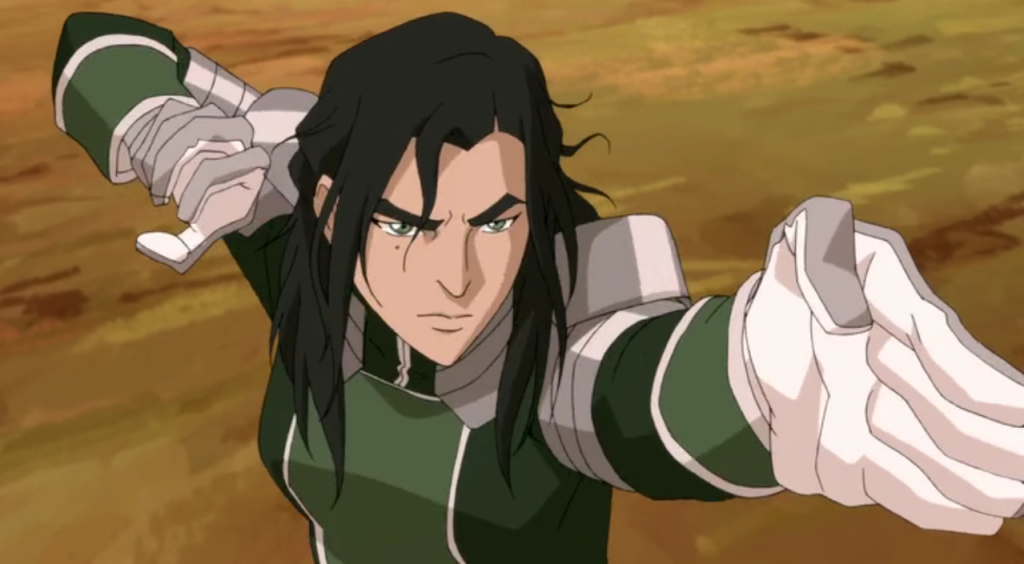11.07
I’m struck by how shiny and clean the Earth Empire tanks look, not like the black iron of the Fire Nation vehicles. They would be horrible in camouflage situations and the like, and it’s probably another propaganda tool for Kuvira to use, but there’s something endearing about someone who cleans their tanks so they can see their face on it before going to war. A bit egotistic, sure, but it shows there’s care to that personality cult. A shame they aren’t utilized much in this episode though. Not even the mechs are given much time to shine (figuratively). This week is supposed to be more personal, with the one-on-one fight between Korra and Kuvira.
There’s been debate over whether Suyin was right in not taking part in the Earth Kingdom’s reconstruction, especially since doing so would have prevented Kuvira from achieving her current position. While the show is supporting her for taking the pacifist stance, and she explains why she didn’t take a more utilitarian approach, but that rings a bit hollow when she goes ahead with an assassination attempt on Kuvira instead of that peacefulness that informed her previous decisions. I could see it as Suyin being a hypocrite, going along with diplomatic affairs as long as they don’t involve her own family, in that case making her become the woman Lin thought she was long ago. Then you have Korra’s unsure behavior as to fight Kuvira or not early in the episode, and that makes this week seem like a question as to whether pacifism can work in light of a hostile landscape.
The episode follows this with another question as to whether it’s right for one city to hold the nation’s prosperity, like how Zaofu can thrive while the rest of the Earth Kingdom suffered for decades. I suppose that adds to Suyin’s hypocrisy if she’s supposedly hoarding the Earth Kingdom’s potential wonders in her little hub, but she does try to be an honest woman about it. While Kuvira claims to want this wealth to be shared, it’s more likely than not assimilation into her own personal forces rather than the villages she controls. It’s like how communism sounds good on paper, but goes haywire when acted upon. You could compare it to Amon’s ideals back in the first book, and how he wanted to get rid of bending despite being a proficient bloodbender himself.
All that and more shows that Kuvira doesn’t practice what she says to her forces. She wants to be seen as a diplomat and a leader. But deep down, she’s really just a warlord in need of a good fight, like how she savors her battle with Korra. Focus on her face during the fight, and she looks more ecstatic than she ever did in previous episodes. That’s the face of someone who can show their true side rather than a restrained mask for political purposes. She gets to show off in front of everyone by beating up the Avatar, proving her superiority over the spirits and mankind alike by fighting and winning against their representation.
But that’s more through her manipulation than actual strength though. Despite promising a fair fight, she knows that Korra hasn’t fully rehabilitated and doesn’t care, like swinging a new axe onto a dead tree. And even though she promises that Korra can use all four of her elements on equal footing, they’re fighting on nothing but land with no water to speak of. Korra can’t even use the bending she’s most suited for; instead resorting to attacks she’s only learned a few years ago. It’s like what Bruce Lee said, about how he fears not the man who had practiced ten thousand kicks once but the man who has practiced one kick ten thousand times. Any fire or air Korra can pull means nothing compared to one quick metal attack that Kuvira’s probably practiced since childhood.
